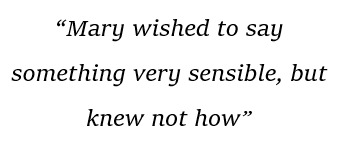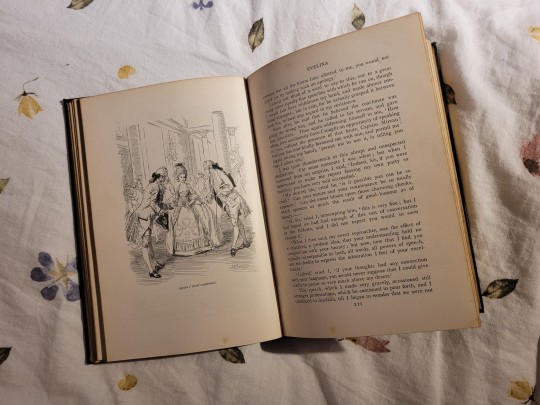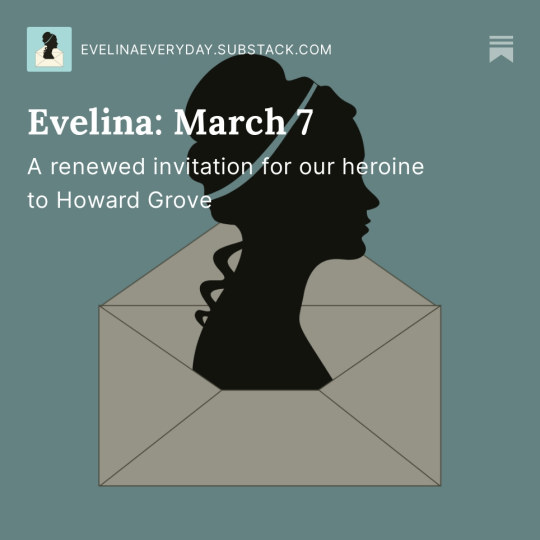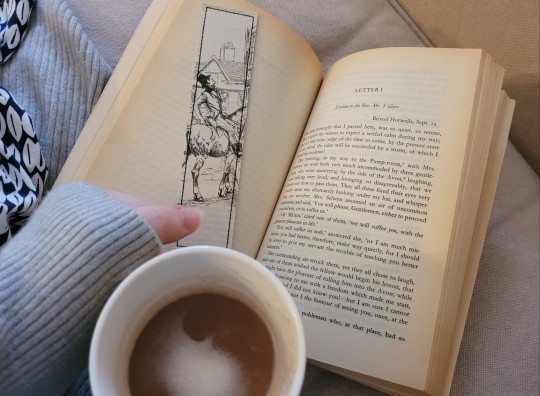#fanny burney
Text







Feeling uncertain and inexperienced
Agnes Grey by Anne Brontë; Howard end by E. M. Forster; Pride and Prejudice by Jane Austen; Persuasion by Jane Austen; Evelina by Fanny Burney; A room with a view by E. M. Forster; Mansfield Park by Jane Austen.
#web weaving#phrases#novels#classic literature#dark academia#light academia#jane austen#anne brontë#e.m forster#fanny burney#pride and prejudice#a room with a view#persuasion#agnes grey#howards end#evelina#mansfield park#literature#naivety#female experience
98 notes
·
View notes
Text
Classic books are so good for audio. So many of them are in omniscient or first-person POV, with a narrator who's telling you the story, so having someone read it aloud to you feels natural. A good audiobook narrator can add emotion and personality to the words, so what might look like blocks of impenetrable text on the page becomes natural and engaging storytelling. Audio has turned several classics into favorite books, despite the fact that I'd never be able to get through it in print.
Like, right now I'm listening to Fanny Burney's Evelina. I actually used to own a print copy of this, but got rid of it because I could never get beyond a couple of pages. In audio, it's an absolute delight. Instead of a boring person who writes too-long letters, Evelina is now a lively and intensely-relatable seventeen-year-old girl. She's describing the intricacies of daily life in (almost) Regency London because she's never been there before, which is helpful to me, who has also never been to Regency London. I find myself wishing I'd experienced this book before I'd read Austen, because it explains things like clothes and etiquette that Austen just glosses over. (I've picked up most of this history over the years, but it's still cool to get the history primer along with the story.) Hearing all the different voices of the characters makes the story flow like a really good movie (and I wish there was a movie). It's an experience that I can't get with print, and it's amazing how much better it makes the book.
51 notes
·
View notes
Text



02.08.2023 - I've done some (very unexpected) second hand book shopping, however, I found this 1904 edition of Evelina with illustrations by Hugh Thomson and couldn't leave it behind! I've been dying for a Thomson illustrated book for a long time and this was perfect - I've been loving Evelina, it's in reasonably good condition, and it was only £24?! I've not seen this edition for less than £65!
Currently reading: Evelina by Frances Burney; The Book of Lost Tales Part Two by J.R.R. Tolkien
#books#reading#vintage books#evelina#frances burney#fanny burney#hugh thomson#classic literature#18th century literature#I've developed a new obsession with vintage books this year#not really collectable books#just pretty vintage copies I wouldn't feel bad about reading
7 notes
·
View notes
Note
I'm currently reading Evelina (I'm not very far in yet, only about 1/5 of the novel) and sometimes it's very funny, but at other times it makes me feel like I'm reading a Monty Python's sketch. I genuinely want to climb in through the pages and strangle Captain Mirvan just so I don't have to absorb anymore of his opinions about France and French people. You've mentioned you've read it too. Does it get better further in the novel? Like more plot, less exhausting dialog?
No, it doesn't get better. I guess it doesn't get worse? I read Belinda by Maria Edgeworth at the same time and I preferred it over Evelina.
I totally am with you about Captain Mirvan and I can hardly read the letters from her guardian, they are so fawning it's creepy. There were a lot of Northanger Abbey vibes for me.
But anyway, this is why you need to get to the VERY END, there is a monkey and it's actually a good joke. The monkey will make you feel like it was all worth it (maybe).
Also, the proposal from the love interest is weirdly similar to the proposal between Henry Crawford and Fanny Price in Mansfield Park. Here is a spoilery side-by-side comparison for later.
Good luck!
16 notes
·
View notes
Note
So I finished Evelina! I definitely enjoyed it, although I think we both agree it could do with some trimming down. Now I had heard that Austen was a fan of Fanny Burney, but I kind of thought that the overly-sentimental language would have been something Austen would have mocked. That, and I feel like I saw quite a few parallels between Evelina and Northanger Abbey. What are your thoughts?
I think perhaps my problem was reading it for a book club, a few lettters a week. It felt UNENDING.
My favorite parts were
Everyone is related to everyone
A monkey shows up somehow
The Scottish poet who was going to commit double pistol wielding suicide
Evelina carrying two pistols (I think most Austen heroines would benefit from having two pistols to wield at some point, as a treat.)
The absolutely bonkers anticlimactic drama of finally meeting sir John Belmont. Almost "the wizard of Oz was actually a man" vibes, but, like, "callous byron-like villain was actually a ridiculous dramatic diva all along".
Evelina is definitely a heavy influence in Northanger, specially the Evelina-Orville-Willoughby situation. I do think she actually liked and enjoyed these novels, the ribbing is so in good humor. It helps that most of the novels of the time are also overtly long and telenovelesque.
NOW WHERE IS OUR EVELINA MOVIE I ASK
Edit: one thing I really disliked about the novel, besides the repetitiveness, was this huff of 80s bodice ripper, where apparently horrified by men's universal irresistible attraction towards her Evelina, still keeps putting herself again and again in the same situations that get her harassed as if she actually wanted it, but keeping a veneer of modesty over it all. Which I find extremely jarring (unlike, say, Fanny Price, who is a soft character who learns from experience, and also, Catherine Morland)
#ask#miraculoushedgehog#thank you so much for telling me your thoughts about it#I was curious#Evelina#Fanny Burney
8 notes
·
View notes
Text
2 notes
·
View notes
Text
Reading Cecilia Vol. 1
I’m trying to read the brick that is Cecilia, or Memoirs of an Heiress (1782) by Frances Burney this summer, and since I haven’t been able to find many people talking about this book, I wanted to share my thoughts as I read! I’m always desperate to talk with people about books i need an outlet - New post for each volume, and as I read each volume I’ll just add to that post.
I’m not very far in (vol. 1, chap. 8), but I already love it. Cecilia is such a wonderful character and I love her - she has laughed so much in these first 50ish pages & has so many dry, sarcastic responses especially when talking with Miss Larolles.
I’m surprised at how outnumbered the female characters are by the male characters - while there are a few female characters that pop up multiple times, the men are constantly around. I feel bad for Mr. Arnott and thought Burney’s description of love vs adoration was interesting. Mr. Morrice is a nuisance and gives strong Mr. Collins vibes. I don’t know Sir Robert’s problem (sayings Cecilia was lifeless?! The audacity).
Mr. Monckton is by far the worst - the rest of the men seem relatively harmless (except Sir Robert’s gaming…), but Monckton is truly horrific. Essentially trying to groom Cecilia to marry him and anxiously wanting his wife to die. Furious that he’s in London; he needs to go back to Bury and stay away from Cecilia.
I’m really excited to meet Cecilia’s other guardians and for her to get out of this house!
2 notes
·
View notes
Text
Legendary
dary...........
#how i met your mother#how i met your father#legendary reality show returns to channel 4 after 10 years#fanny burney#frances burney#lilly singh#lillyannarose
2 notes
·
View notes
Text
Tired: yet another adaptation of Jane Austen
Wired: adapt Fanny Burney
Inspired: adapt Mary Robinson
https://en.wikipedia.org/wiki/Natural_Daughter_with_Portraits_of_the_Leadenhead_Family
4 notes
·
View notes
Photo

And when will thís be turned into a movie? Fanny Burney’s ‘Evelina’
http://www.frockflicks.com/five-books-movies/
https://rbkclocalstudies.wordpress.com/2015/05/28/18th-century-escapades-evelina-and-fanny/
0 notes
Photo

Written three months after the last, in which time Mr. Villars has been in ill-health, Letter 3 arrives! 💌
Subscribe to read along in real time!
#dracula daily dupes#public domain periodicals#epistolary subscriptions#evelina everyday#Evelina#frances burney#fanny burney#substack does classics#classics#book clubs#epistolary#dracula#substack#chronological reading#classic literary subscriptions#substack read alongs#seriously we need a proper word/term for this#historical romance#swoonyreads#classic novels#bridgerton#comedy#brit lit#lady susan
1 note
·
View note
Text
"The cure of a romantic first flame is a better surety to subsequent discretion, than all the exhortations of all the fathers, and mothers, and guardians, and maiden aunts in the universe."---Fanny Burney, English satirical novelist, 1752-1840
“The cure of a romantic first flame is a better surety to subsequent discretion, than all the exhortations of all the fathers, and mothers, and guardians, and maiden aunts in the universe.”—Fanny Burney, English satirical novelist, 1752-1840
View On WordPress
0 notes
Text

04.08.2023 - It's cold, raining, and I've been arguing with the bank all afternoon... So, I'm treating myself to a cosy evening with Evelina and an hot chocolate to make up for it!
Currently reading: Evelina by Frances Burney; The Book of Lost Tales Part Two by J.R.R. Tolkien
#books#reading#bookblr#evelina#18th century literature#classic literature#fanny burney#hot chocolate#the hot chocolate making was an ordeal but it tastes good so that's all that matters
6 notes
·
View notes
Text
Two Very Similar Proposals
Where did Mr. Collins get the idea that delicate females refuse proposals to increase love? Maybe from Evelina...
Here is a side-by-side comparison of the accepted and wanted proposal in Fanny Burney’s Evelina and the refused and unwanted proposal in Jane Austen’s Mansfield Park (MP in blockquotes, Evelina in italics) because they are extremely similar, to the point that I think it must be on purpose:
“You are going, then,” cried he, taking my hand, “and you give me not the smallest hope of your return!-will you not, then, my too lovely friend!-will you not, at least, teach me, with fortitude like your own, to support your absence?”
“She must not go, she must allow him five minutes longer,” and he took her hand and led her back to her seat
“My Lord,” cried I, endeavouring to disengage my hand, “pray let me go!”
after having twice drawn back her hand, and twice attempted in vain to turn away from him, she got up, and said only, with much agitation, “Don’t, Mr. Crawford, pray don’t! I beg you would not. This is a sort of talking which is very unpleasant to me. I must go away. I cannot bear it.”
“I will,” cried he, to my inexpressible confusion, dropping on one knee, “if you wish to leave me!”
“O, my Lord,” exclaimed I, “rise, I beseech you, rise!-such a posture to me!-surely your Lordship is not so cruel as to mock me!”
she was exceedingly distressed, and for some moments unable to speak. She considered it all as nonsense, as mere trifling and gallantry, which meant only to deceive for the hour; she could not but feel that it was treating her improperly and unworthily, and in such a way as she had not deserved...
“No, no, no!” she cried, hiding her face. “This is all nonsense. Do not distress me. I can hear no more of this.”
“Mock you!” repeated he earnestly, “no I revere you! I esteem and I admire you above all human beings! you are the friend to whom my soul is attached as to its better half! you are the most amiable, the most perfect of women! and you are dearer to me than language has the power of telling.”
I attempt not to describe my sensations at that moment; I scarce breathed; I doubted if I existed,-the blood forsook my cheeks, and my feet refused to sustain me: Lord Orville, hastily rising, supported me to a chair, upon which I sunk, almost lifeless.
she could hardly stand.
For a few minutes, we neither of us spoke; and then, seeing me recover, Lord Orville, though in terms hardly articulate, intreated my pardon for his abruptness. The moment my strength returned, I attempted to rise, but he would not permit me.
I cannot write the scene that followed, though every word is engraven on my heart; but his protestations, his expressions, were too flattering for repetition: nor would he, in spite of my repeated efforts to leave him, suffer me to escape:-in short, my dear Sir, I was not proof against his solicitations-and he drew from me the most sacred secret of my heart!
But he was still talking on, describing his affection, soliciting a return, and, finally, in words so plain as to bear but one meaning even to her, offering himself, hand, fortune, everything, to her acceptance.
Later, we have Lord Orville, who remember, is the hero, forcing Evelina to speak:
He saw that my eyes were red, and would not let me rest till he made me confess the cause; and when, though most reluctantly, I had acknowledged my weakness, I could with difficulty refrain from weeping again at the gratitude he expressed.
“Why then, my Lord,” said I, “we had better let the subject drop.”“Impossible!” cried he, “I cannot rest without an explanation!”
In vain was her “Pray, sir, don’t; pray, Mr. Crawford,” repeated twice over; and in vain did she try to move away. In the same low, eager voice, and the same close neighbourhood, he went on, reurging the same questions as before. She grew more agitated and displeased.
“How can you, sir? You quite astonish me; I wonder how you can—”
We know that Austen read Fanny Burney’s works (they are mentioned in Northanger Abbey) and that they were very popular. I wonder now, was Austen re-writing this scene? If Evelina is acting as a modest girl was expected to act, was Jane Austen trying to correct men’s thinking? For me, it was disturbing to read a proposal where a man was asking a woman to marry him, which was wanted, and he had to physically hold her in place to ask, against her will.
It is uncanny how similar these two proposals read; very strange that the hero of Evelina acts in such a similar way to the antagonist of Mansfield Park. I can’t help but think it means something. Evelina’s “no” doesn’t seem to actually mean “no”, Fanny Price’s does.
#fanny burney#jane austen#evelina#mansfield park#lord orville#henry crawford#fanny price#the perfect modest woman#comparison#it's too similar to be a coincidence#no means no#I'm not trying to be hard on burney#but this scene was weird to a modern woman#If a Lord offered to marry me I wouldn't need to be held down#just saying
48 notes
·
View notes
Text
You know, reading posts on the Dracula Daily tag about doing the same for Frankenstein next, but consider:
- Daddy Long Legs and Dear Enemy, to watch people get squicked out by stuff that wouldn't surprise anyone in the 1910s, while at the same time being charmed by Jean Webster's prose.
- The Tenant of Wildfell Hall, and it's schröedinger's timeline problem where you either start with Helen's diary and then the emails take like a decade long hiatus until you get to the letters of the framing device OR you get the whole novel in 4 emails.
- Evelina, although that one would be just unendingly repetitive and weird. But that's the evilness of it.
- Little Women, which is not epistolary but consider: you get somewhat regular emails for a year. Then there's a whole 3 years gap. You forget you subscribed. Then you get an email with all the gossip of what's been going on with the family for those years. Then you get irregular, sparse emails for 7 years. Bonus points: they also add Little Men and Jo's Boys. It takes 29 years to finish the saga.
#dracula daily#the tenant of wildfell hall#little women#daddy long legs#dear enemy#jean webster#anne brontë#louisa may alcott#little men#jo's boys#evelina#fanny burney
55 notes
·
View notes
Text
they cut off my tags on that thoreau post. i wrote like much more of a rant and tumblr didnt even tell me they were cuttin it before i pressed post
#listen. i would've been more concise if you made me#tales from diana#i get so passionate on the topic of pre-nineteenth-century female writers and their systemic exclusion from the literary canon#it drives me up a wall i could truly talk forever and ever about all of these misconceptions#lately the one that gets under my skin is 'look at these (well-remembered) female writers who wrote under a pen name'#my god especially if it's a MALE (or gender-neutral) pen name#first of all. the brontes did not have 'male' pen names. the gender of the bells was not known or presumed#but the assumption is that these ppl were trying to hide their gender rather than many ppl chose not to disclose their identity#bc they didnt want their identity to be known.#also many many many women chose unambiguously feminine pen names. ephelia or astrea or laura or lesbia#(yes very often aping latin/classical conventions)#or what jane austen published her work under initially? A Lady#that's not someone trying to avoid being judged as a woman but someone trying not to be known personally in the world. understandably#and many many early novelists were women. the novel was not a respected art form AT ALL in its early years#so it wasn't that controversial that many of the biggest novelists were women.#as the novel grew in perceived sophistication and respectability. the feminine aspect of its identity waned away slowly#and now the generations of aphra behns and eliza haywoods and fanny burneys and ann radcliffes are forgotten entirely#bc no one cared to preserve it!! THAT is the part of the systemic misogyny#not that zero women ever wrote or published anything. far from it#but it took a considerable amount of resourcefulness and/or privilege to achieve that in the first place#and even with that being accomplished. people did not value it enough to preserve it for future generations#we would not have shakespeare like we do without the first folio. that's a very significant historical fact in his legacy.#we'd have maybe a dozen or so plays. not 38.#but even today you do not go into a bookstore and find the complete works (or even plays) of aphra behn anywhere.#or susanna centlivre or mary pix or hannah cowley#how many people do you know who recognize those names? let alone how many people do you know who have READ their works?#very few. and they are not easy to fucking find anywhere either!#and often unless they've been selected in a series like oxford's world classics (god bless oxford's world classics btw!!!)#you won't find them except from very select sellers and often very expensively#many such early women novelists and playwrights have works so rare you cannot find them duplicated on public access sources
6 notes
·
View notes